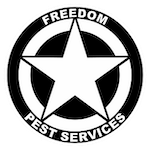Contamination refers to the introduction of harmful substances or pollutants into an environment, posing risks to its natural balance, health, and usability. It can occur in various forms:
- Water Contamination: This involves the pollution of water bodies like rivers, lakes, and groundwater due to the presence of contaminants such as chemicals, heavy metals, or pathogens. It can result from industrial discharges, agricultural runoff, sewage, or improper waste disposal.
- Soil Contamination: Soil contamination occurs when substances like pesticides, heavy metals, or hazardous chemicals infiltrate and accumulate in the soil, making it unsuitable for certain uses, including agriculture, gardening, or construction.
- Turf Contamination: Turf, typically referring to grass or lawns, can become contaminated when pesticides or chemicals are applied to it. This can impact the health of the grass, nearby vegetation, and potentially harm the environment if contaminants leach into the soil.
Contamination poses environmental and health risks, affecting ecosystems, aquatic life, and human well-being. Preventative measures, responsible waste management, and sustainable practices are essential to mitigate contamination and protect our environment.
The Consequences of Contamination: Environmental Effects
- The dangers of pesticide runoff into water sources: Pesticide runoff from agricultural and urban areas can lead to water pollution, harming aquatic life and posing risks to drinking water sources. It disrupts ecosystems, impacting the health of rivers, lakes, and oceans.
- Soil contamination and its long-term impact on agriculture: Soil contamination, often from pesticides, can reduce crop quality, degrade soil health, and raise food safety concerns. It disrupts natural soil ecosystems and may persist for years.
- Turf: Turf contamination can result from pesticide use on lawns and sports fields, affecting not only the grass but also the surrounding environment.
How to Prevent Pesticide Contamination
To prevent pesticide contamination, practices such as using eco-friendly pesticides, following application guidelines, implementing integrated pest management (IPM), and minimizing pesticide use in favor of alternative methods should be adopted. Proper disposal and handling of pesticides are also essential to reduce contamination risks.
Trust Our Safe Solutions!
We use eco-friendly and low-impact pest control methods to keep your home pest-free while minimizing harm to the environment and your family.
At Freedom Pest Services, we understand the importance of a safe and healthy living environment for you and your loved ones. Pesticide contamination can pose serious risks to both your property and well-being.
